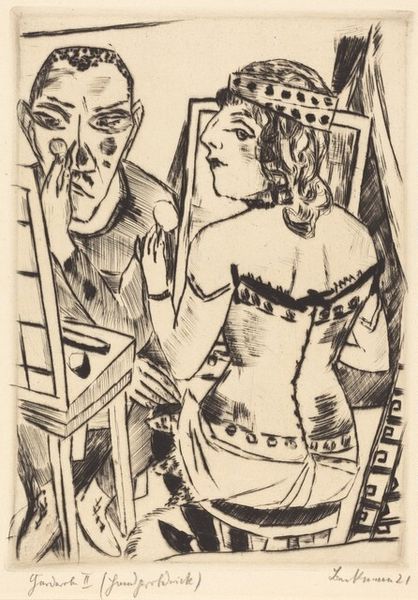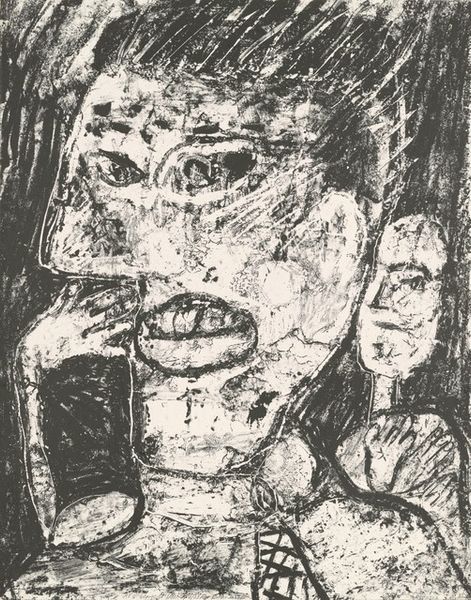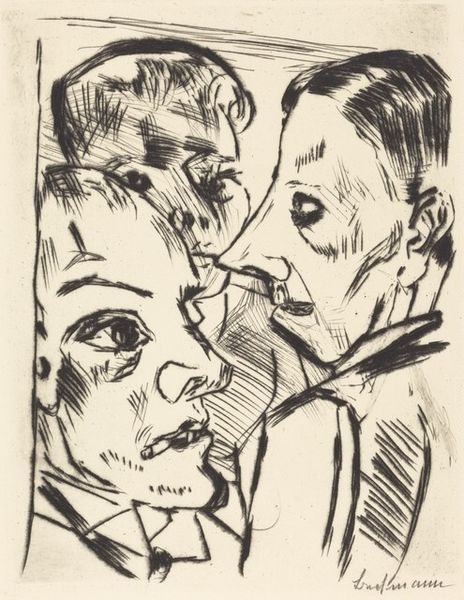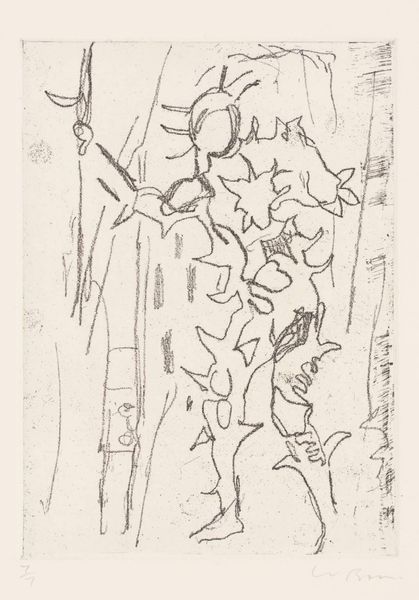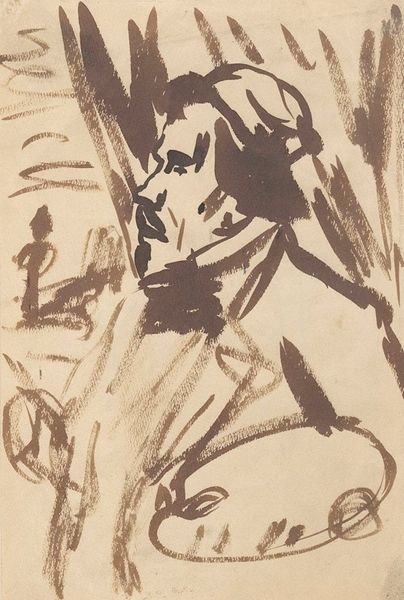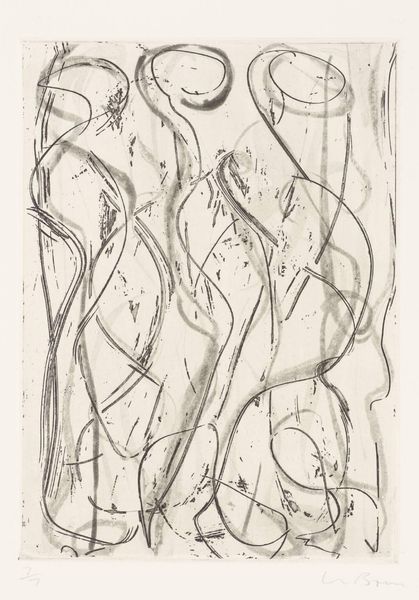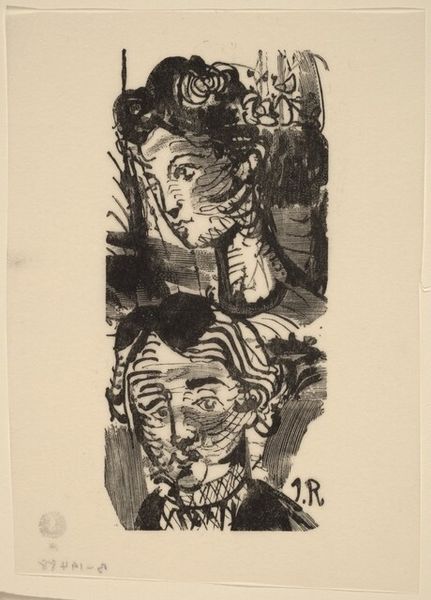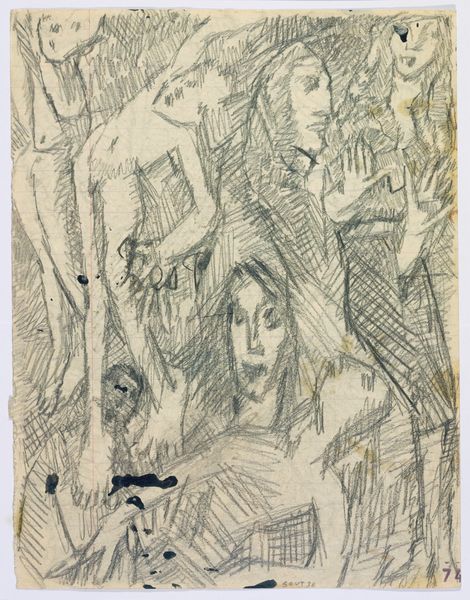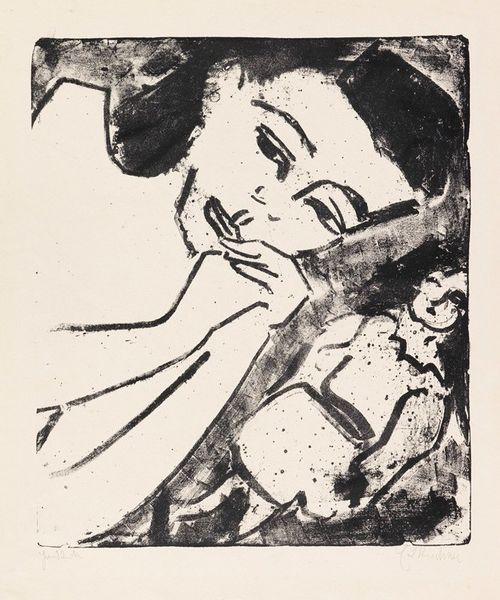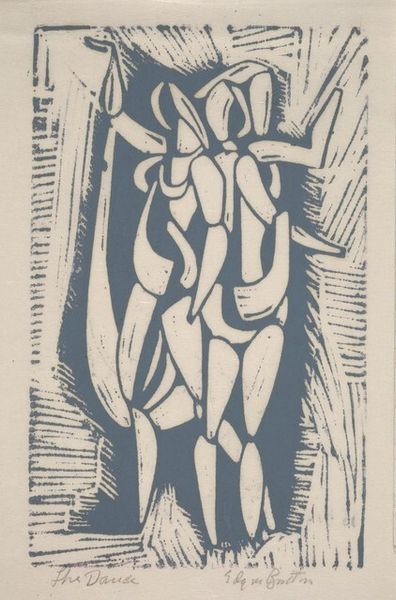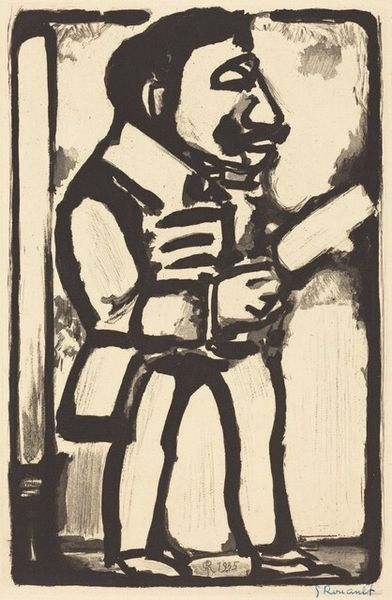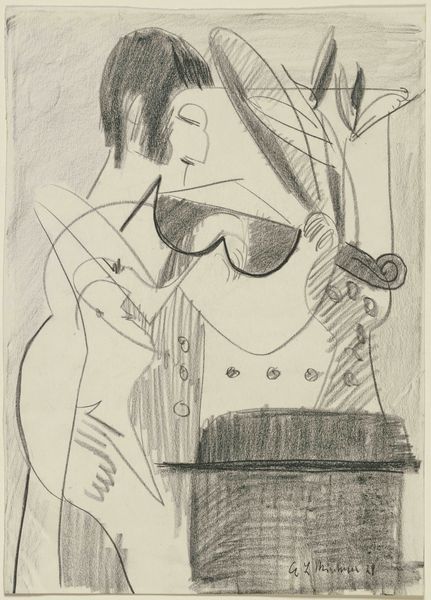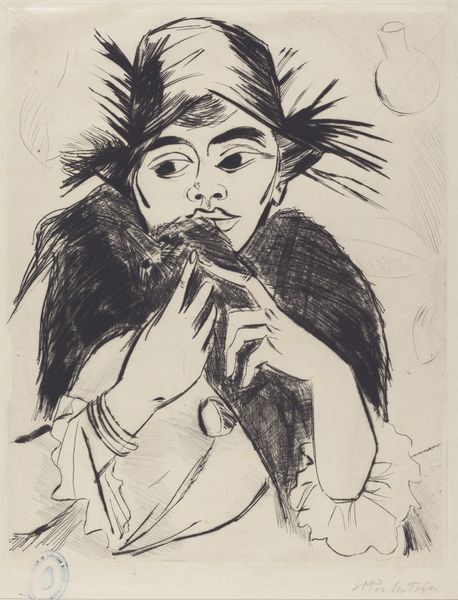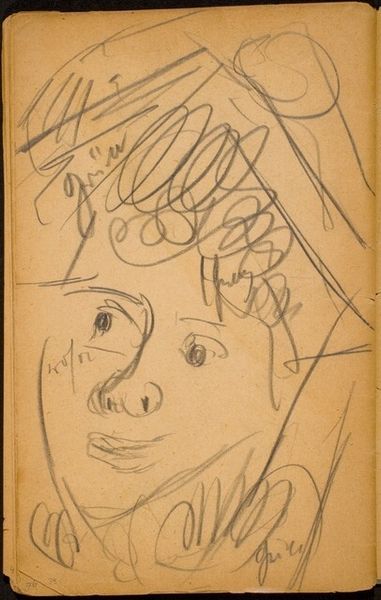
drawing, print, ink
#
portrait
#
drawing
# print
#
german-expressionism
#
figuration
#
ink
#
expressionism
Copyright: National Gallery of Art: CC0 1.0
Curator: Right, let's talk about Max Beckmann’s “Pierrot and Mask,” a print, probably from around 1920, rendered in ink. It presents us with a compelling image. What strikes you first? Editor: Well, there's a sort of unsettling mirth to it. It’s not a cheerful carnival, more like a danse macabre staged in a shadowy dream. That Pierrot’s grin... it doesn't quite reach his eyes, does it? The other masked figure appears possessed! It makes my teeth itch just looking at it. Curator: The material itself is very revealing, wouldn't you say? Beckmann's use of ink, a readily available medium, suggests a democratizing impulse, especially poignant considering the economic hardship in post-war Germany. This wasn't art destined only for elite salons. These kinds of prints would have reached a wide cross section of people at an affordable price. The subject matter feels very pointed, when viewed from this social position. Editor: Absolutely, it cuts through the pretense of the era! There is also a bit of dark, bohemian expression I often find fascinating about Beckmann and his art, it pulls no punches. The Pierrot, typically a figure of wistful sadness, here feels…almost menacing. And the second smaller masked character, feels trapped within a narrative neither can control. It is unnerving. Curator: Think about the labor involved. The creation of the plate, the repetitive process of printing—each pull an act of reproduction, an engagement with mass culture. Also, consider the cost! Ink wasn't free; paper had value. Who were the intended consumers? What did they see in these images? I'd say these questions directly speak to a society rebuilding. Editor: I bet it served as a reminder, perhaps even as a harbinger of what lurked beneath the surface. What happens if we put on masks and the masks refuse to come off? Curator: Fascinating thought! Looking at the physical nature, and artistic choices that Beckmann clearly put to the printing of this work makes you understand more deeply that we still don't fully understand the social currents of his time and work, which I love! Editor: I will agree with that! His choices seem as urgent and visceral to this day, like a confession whispered from behind the mask, and now I'll sleep with the lights on.
Comments
No comments
Be the first to comment and join the conversation on the ultimate creative platform.
